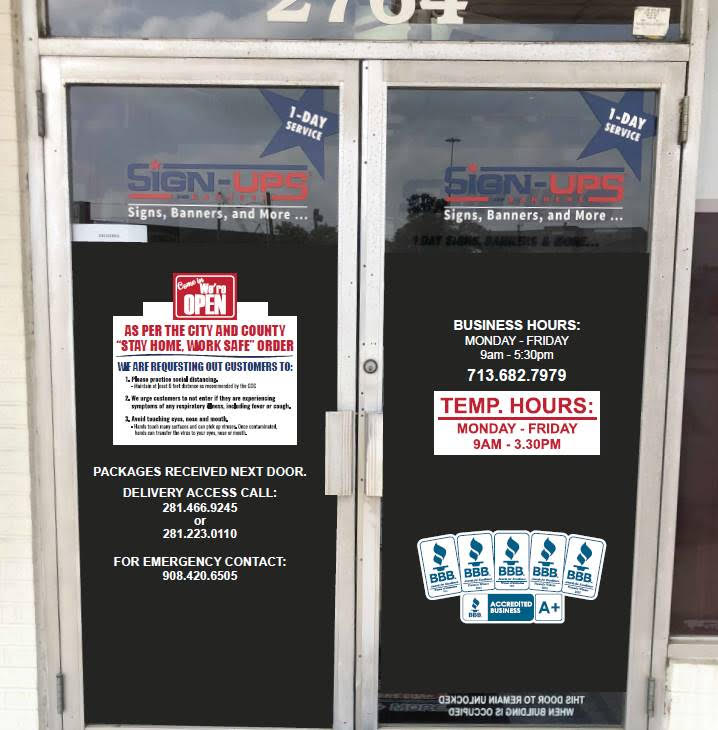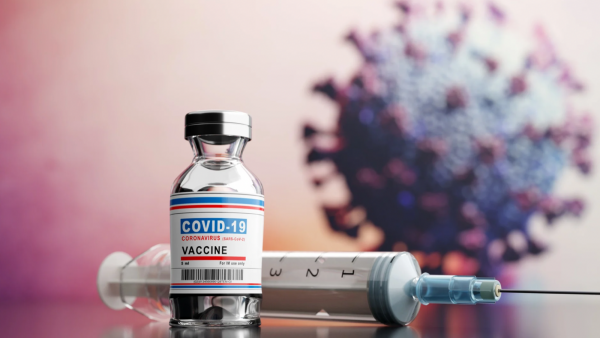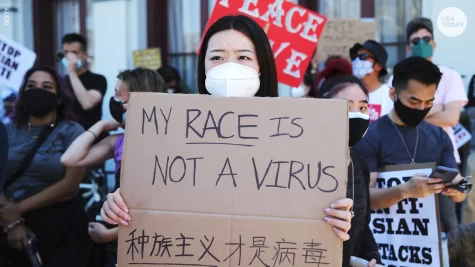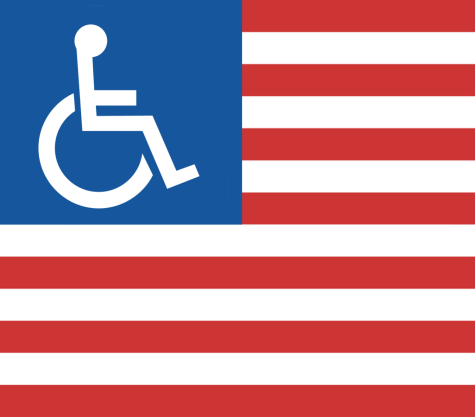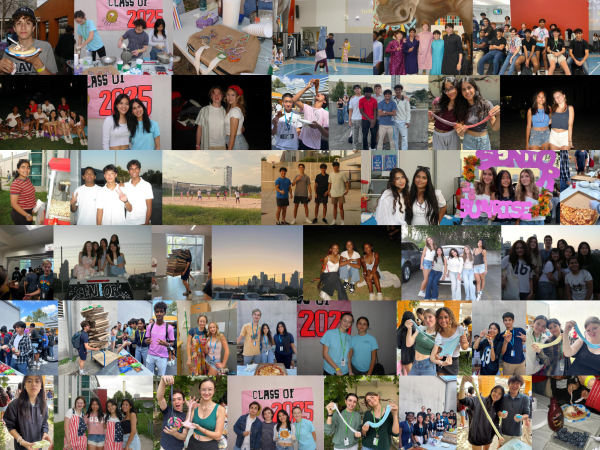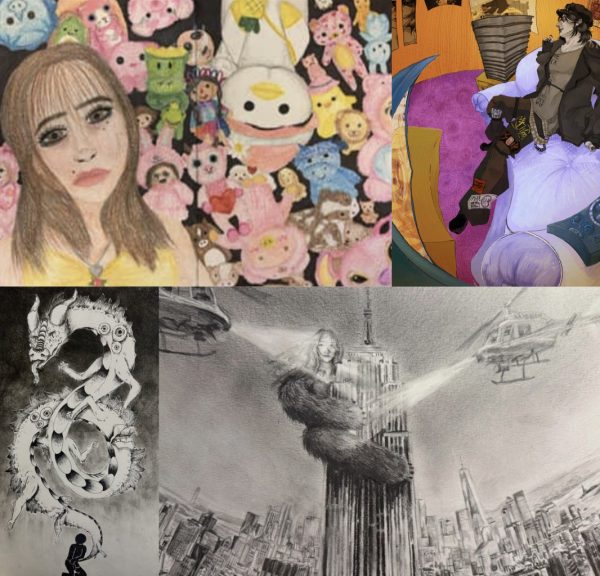Being on the supply chain for essential businesses during the COVID-19 crisis
Gabriel Lasley, Sign-Ups Manager
Sign-Ups and Banner’s Front Door with notice of COVID-19
“COVID-19”, “Coronavirus”, “Miss Rona”, and the infamous “Chinese virus” courtesy of Donald J. Trump.
On December 8, 2019, the first patient in China developed symptoms of COVID-19 in Wuhan and by Dec 31 they informed the World Health Organization (WHO) about multiple “pneumonia” cases and fast-forward to January 11, 2020, when the first death from COVID-19 in China was recorded.
This fast-spreading virus has, in so little time, changed our lives and the way we do things so significantly. All around the globe, people are having to learn how to adapt to this new lifestyle.
Our daily lives have become very dependent on the internet and virtual ways to connect. People have had to reconfigure their lives so they can proceed with life as normally as they can. Resources such as Zoom allow workers to communicate remotely.
“A lot of sales client servicing calls are being handled from remote by our team. So some aspect of it is inefficient because we cannot physically move to our production side of the house and talk to our production manager to change schedules if we had to. But other than that there’s been more coordination needed. There’s more planning needed.” Sign-Ups and Banners company owner Sue (Shuchi) Sharma comments on the adjustments her team has had to make to be able to safely accommodate so her business can still operate for other essential businesses.
An issue that has come to light is what is or isn’t an essential business. Debates on whether marijuana stores or liquor stores are more “essential”. But what about the businesses that supply them?
“We work for the port of Houston, we work for the Houston airport system. We make signs for customs and borders. We make signs for the city of Houston, we make signs for hospitals. So I’d like to say we work for a lot of essential businesses,” says Sharma. While a sign manufacturing company may seem non-essential, they supply very obvious essential businesses.
Sharma has had to juggle a lot as her production team hasn’t been able to be in the store as many hours or days that they usually would be. Even through this pandemic, she still has to supply signs to the airport, the City of Houston, amongst others. These are all essential businesses and that need signs to continue their operations. Signage is only one example of the things that essential businesses need to keep their doors open. To keep them open, they still need internet and tech support, cleaning systems, and other vendors that supply their work.
These smaller businesses are struggling as they also have to accommodate their faculty and staff to still be able to help and supply the bigger essential businesses. It is becoming more and more complicated as COVID-19 spreads more and begins to overtake cities to keep employees in stores and paid. As a record 3.3 million people filed claims for unemployment in the US last week (The Guardian), businesses struggle to stay above the water.
COVID-19 will and already has rapidly changed the way we operate on a day-to-day basis. Relying on technology will become more prominent and the way we conduct ourselves socially will inevitably change as society moves on from this pandemic.
Your donation will support the student journalists of Carnegie Vanguard High School. Your contribution will allow us to cover our annual website hosting costs and fund field trips, competition fees, and equipment. We appreciate your support!


